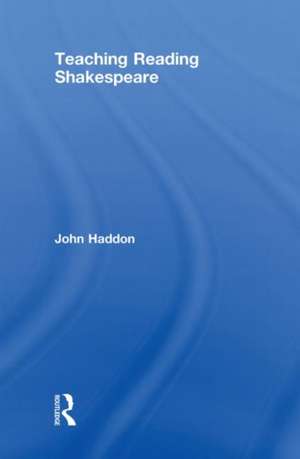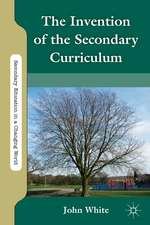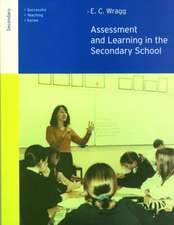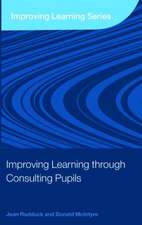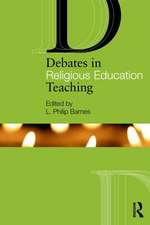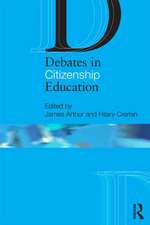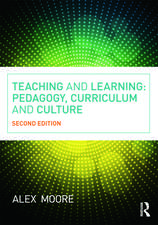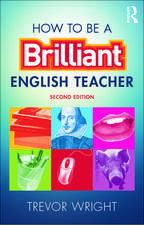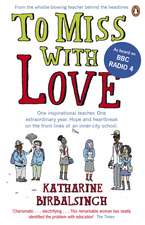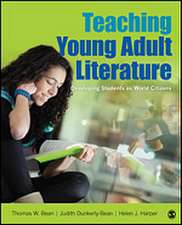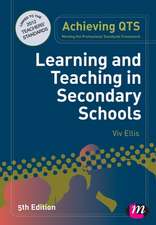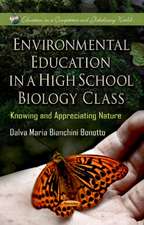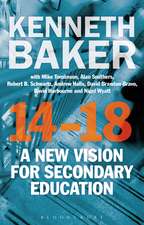Teaching Reading Shakespeare
Autor John Haddonen Limba Engleză Hardback – 20 ian 2009
- Simon Thomson, Globe Education, Shakespeare’s Globe
John Haddon offers creative, systematic and challenging approaches which don’t bypass the text but engage children with it. He analyses difficulty rather than ignoring it, marrying his own academic understanding with real sensitivity to the pupils’ reactions, and providing practical solutions.
- Trevor Wright, Senior Lecturer in Secondary English, University of Worcester, and author of 'How to be a Brilliant English Teacher', also by Routledge.
Teaching Reading Shakespeare is for all training and practising secondary teachers who want to help their classes overcome the very real difficulties they experience when they have to ‘do’ Shakespeare.
Providing a practical and critical discussion of the ways in which Shakespeare’s plays present problems to the young reader, the book considers how these difficulties might be overcome. It provides guidance on:
- confronting language difficulties, including ‘old words’, meaning, grammar, rhetoric and allusion;
- reading the plays as scripts for performance at Key Stage 3 and beyond;
- using conversation analysis in helping to read and teach Shakespeare;
- reading the plays in contextual, interpretive and linguistic frameworks required by examinations at GCSE and A Level.
| Toate formatele și edițiile | Preț | Express |
|---|---|---|
| Paperback (1) | 343.01 lei 43-57 zile | |
| Taylor & Francis – 22 ian 2009 | 343.01 lei 43-57 zile | |
| Hardback (1) | 1218.58 lei 43-57 zile | |
| Taylor & Francis – 20 ian 2009 | 1218.58 lei 43-57 zile |
Preț: 1218.58 lei
Preț vechi: 1486.07 lei
-18% Nou
Puncte Express: 1828
Preț estimativ în valută:
233.25€ • 253.45$ • 196.06£
233.25€ • 253.45$ • 196.06£
Carte tipărită la comandă
Livrare economică 21 aprilie-05 mai
Preluare comenzi: 021 569.72.76
Specificații
ISBN-13: 9780415479073
ISBN-10: 041547907X
Pagini: 206
Ilustrații: 1 line drawing
Dimensiuni: 156 x 234 x 13 mm
Greutate: 0.47 kg
Ediția:1
Editura: Taylor & Francis
Colecția Routledge
Locul publicării:Oxford, United Kingdom
ISBN-10: 041547907X
Pagini: 206
Ilustrații: 1 line drawing
Dimensiuni: 156 x 234 x 13 mm
Greutate: 0.47 kg
Ediția:1
Editura: Taylor & Francis
Colecția Routledge
Locul publicării:Oxford, United Kingdom
Public țintă
Postgraduate and ProfessionalCuprins
Prologue Part I: Language 1. Admitting the difficulty 2. 'All these old words' 3. Case Study: 'Virtue' 4. Grammar 5. Metaphor 6. Allusion 7. Rhetoric 8. Paraphrase 9. Some strategies 10. Long Speeches Part II: Aspects 11. Narrative 12. Theatre 13. Context 14. Interpretation 15. Talk Epilogue: Finding Value in Shakespeare
Recenzii
'Teaching Reading Shakespeare is warmly and clearly communicated, and gives ownership of ideas and activities to teachers by open and explicit discussion. John Haddon creates a strong sense of community with teachers, raising many significant and difficult issues, and performing a vital and timely service in doing so.' – Simon Thomson, Globe Education, Shakespeare’s Globe
'John Haddon offers creative, systematic and challenging approaches which don’t bypass the text but engage children with it. He analyses difficulty rather than ignoring it, marrying his own academic understanding with real sensitivity to the pupils’ reactions, and providing practical solutions.' – Trevor Wright, Senior Lecturer in Secondary English, University of Worcester, and author of How to be a Brilliant English Teacher, also by Routledge.
'Haddon has plenty of practical suggestions about making Shakespeare accessible in the classroom (and) is rigorous rather than populist in approach. He eschews the cheap and reductive strategies that can often pass for 'lively' Shakespeare teaching ... Haddon's fertility in suggesting strategies to enable the teaching and learning of Shakespeare is prodigious. Teaching Reading Shakespeare is both philosophical and bracingly down to earth in its discussion of its subject.' – The Use of English, The English Association Journal for Teachers of English
'The approach to teaching Shakespeare's language is a holistic and realistic one that scrutinizes the vocabulary, grammar, and usage of the sixteenth century using excerpts from the plays ... Recommended.' – CHOICE (November 2009)
'John Haddon offers creative, systematic and challenging approaches which don’t bypass the text but engage children with it. He analyses difficulty rather than ignoring it, marrying his own academic understanding with real sensitivity to the pupils’ reactions, and providing practical solutions.' – Trevor Wright, Senior Lecturer in Secondary English, University of Worcester, and author of How to be a Brilliant English Teacher, also by Routledge.
'Haddon has plenty of practical suggestions about making Shakespeare accessible in the classroom (and) is rigorous rather than populist in approach. He eschews the cheap and reductive strategies that can often pass for 'lively' Shakespeare teaching ... Haddon's fertility in suggesting strategies to enable the teaching and learning of Shakespeare is prodigious. Teaching Reading Shakespeare is both philosophical and bracingly down to earth in its discussion of its subject.' – The Use of English, The English Association Journal for Teachers of English
'The approach to teaching Shakespeare's language is a holistic and realistic one that scrutinizes the vocabulary, grammar, and usage of the sixteenth century using excerpts from the plays ... Recommended.' – CHOICE (November 2009)
Descriere
‘John Haddon offers creative, systematic and challenging approaches which don’t bypass the text but engage children with it.’ – Trevor Wright, Senior Lecturer in Secondary English, University of Worcester, UK
Teaching Reading Shakespeare is for all training and practising secondary teachers who want to help their classes overcome the very real difficulties they experience when they have to ‘do’ Shakespeare.
Teaching Reading Shakespeare is for all training and practising secondary teachers who want to help their classes overcome the very real difficulties they experience when they have to ‘do’ Shakespeare.
